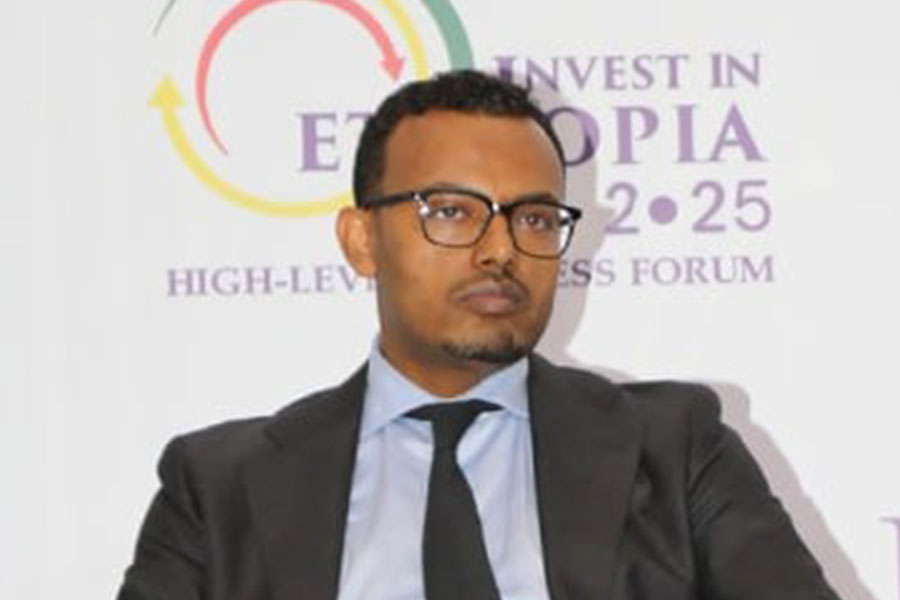
Commentaries | Sep 06,2020
Sep 30 , 2023
By Theódros Tadesse Ayele
As global dynamics evolve, traditional political frameworks seem to gradually step aside, yielding the stage to the increasing clout of identity politics. This transformation is, by no means, region-specific.
In his book, "Identity: The Demand for Dignity & the Politics of Resentment," Francis Fukuyama explores the profound role of identity in contemporary politics and its implications for societal cohesion. In an interconnected world, individuals increasingly seek recognition, respect, and dignity for their identities, and the politics of resentment can arise when these demands go unfulfilled. Fukuyama analyses the consequences of identity politics and proposes strategies for managing identity-related conflicts.
A perfect epitome of this trend is Ethiopia, a country imbued with intricate historical and ethnic diversities.
Rewind to the 20th Century: Politics was often a play of powerful ideological blocs, most notably exemplified by the Cold War – a tense, global stare-down between capitalist and communist ideologies. These ideologies drew clear lines on the map, not just geopolitically but also in alliances and global influence.
But as the century waned, so did the unwavering faith in these ideologies. Enter neoliberal economic policies, globalisation, and a growing scepticism towards the capacities of ideological frameworks. These once-revered paradigms began showing cracks, often failing to adequately address emerging challenges – from socio-economic disparities to environmental crises.
Simultaneously, the world grappled with new issues that defied traditional ideological responses, like climate change, migratory patterns, and the complexities of cultural pluralism.
Naturally, the political apparatus sought alternative modalities.
Identity politics, anchored in the aspirations and grievances of specific socio-ethnic groups, gained prominence. Whether based on race, ethnicity, religion, or gender, the essence remained constant: the recognition and redemption of historic wrongs and systemic inequities.
Factors accelerating this rise are manifold. Globalisation, with its inherent dual character, simultaneously connected and fragmented the world. As the planet became a global village, the clamour for recognition of distinct identities surged.
Activism, often at grassroots levels, began challenging long-held power structures. The ubiquity of digital communications and social media gave wings to these movements, enabling mobilisation and granting them a voice that resonates beyond local borders.
If one were to find a country that encapsulates the challenges and nuances of this transition, Ethiopia would be a prime candidate. Historically, its political landscape was painted with strokes of diverse influences, from the Marxist-Leninist hues of the Derg regime in the 1970s and 1980s to the vibrant colours of pan-Africanism.
Add to this mix, Ethiopia’s rich ethnic mosaic, which has long-standing tensions and past injustices simmering just beneath the surface. It is hardly surprising that identity politics found fertile ground here.
A watershed moment was in 1991 when the Ethiopian government institutionalised recognising ethnic identities, pioneering a multicultural federalist system. While it granted regional autonomy, it inadvertently fueled identity-driven politics, evident in the sprouting of ethnocentric political factions.
The potency of identity politics lies in its ability to empower marginalised voices, spotlighting long-overlooked grievances. But this potency is not without its pitfalls.
The divisions intensified by identity politics can threaten the fabric of national unity. When politics is increasingly seen through the prism of identity, it often catalyses polarisation and an ‘us versus them’ dynamic.
In a country like Ethiopia, this can eclipse overarching national imperatives, making cohesive governance a Herculean task.
This phenomenon is not theoretical for Ethiopians. Real-world manifestations are evident in regions such as Tigray and Oromia, where identity-centric politics has stoked the flames of conflict and mass displacements.
Like many other countries grappling with identity politics, Ethiopia needs a calibrated approach to steer the ship in choppy waters.
Addressing historical and systemic inequalities should serve as a departure point. Only through tangible efforts, both legislative and socio-economic, can sustainable peace be envisioned. Governance and policy must find the golden mean – a balance between addressing group-specific interests and overarching national priorities.
For a country as diverse as Ethiopia, this involves bolstering socio-economic growth that does not merely benefit a segment but ensures holistic development.
Crucially, dialogue must be the cornerstone of the way forward. Encouraging conversations that foster understanding and reconciliation, coupled with efforts to nurture a shared sense of national identity, can bridge the chasms of identity-based divisions.
Robust institutions that rise above identity lines are essential. Underpinned by the rule of law, these institutions` accountability and impartiality can be the pillars upon which a reconciled society stands.
PUBLISHED ON
Sep 30,2023 [ VOL
24 , NO
1222]


Commentaries | Sep 06,2020

Viewpoints | Mar 23,2024

Sunday with Eden | Aug 10,2024

Radar | Aug 26,2023

Commentaries | Mar 18,2023

Radar | May 16,2020

Commentaries | Sep 23,2023

Radar | Sep 21,2025

Radar | Jul 28,2024

Viewpoints | Jan 27,2024

Photo Gallery | 172133 Views | May 06,2019

Photo Gallery | 162361 Views | Apr 26,2019

Photo Gallery | 152152 Views | Oct 06,2021

My Opinion | 136364 Views | Aug 14,2021





Dec 22 , 2024 . By TIZITA SHEWAFERAW
Charged with transforming colossal state-owned enterprises into modern and competitiv...

Aug 18 , 2024 . By AKSAH ITALO
Although predictable Yonas Zerihun's job in the ride-hailing service is not immune to...

Jul 28 , 2024 . By TIZITA SHEWAFERAW
Unhabitual, perhaps too many, Samuel Gebreyohannes, 38, used to occasionally enjoy a couple of beers at breakfast. However, he recently swit...

Jul 13 , 2024 . By AKSAH ITALO
Investors who rely on tractors, trucks, and field vehicles for commuting, transporting commodities, and f...

Oct 4 , 2025
Eyob Tekalegn (PhD) had been in the Governor's chair for only weeks when, on Septembe...

Sep 27 , 2025
Four years into an experiment with “shock therapy” in education, the national moo...

Sep 20 , 2025
Getachew Reda's return to the national stage was always going to stir attention. Once...

Sep 13 , 2025
At its launch in Nairobi two years ago, the Africa Climate Summit was billed as the f...

Oct 5 , 2025 . By NAHOM AYELE
In Meqelle, a name long associated with industrial grit and regional pride is undergo...

Oct 5 , 2025 . By BEZAWIT HULUAGER
The federal government is set to roll out a new "motor vehicle circulation tax" in th...

Oct 5 , 2025 . By NAHOM AYELE
The Bank of Abyssinia is wrestling with the loss of a prime plot of land once leased...

Oct 5 , 2025 . By BEZAWIT HULUAGER
The Customs Commission has introduced new tariffs on a wide range of imported goods i...